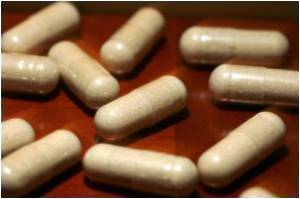Minocycline - the antibiotic drug showed improvements in functioning and mood for children with fragile X syndrome, says report published in Lippincott Williams & Wilkins.

In the study, 66 children with FXS were randomly assigned to three months of treatment with minocycline or inactive placebo. After three months, they were switched to the other treatment. Parents and doctors were unaware of which treatment the child was receiving until the child completed the study.
Fifty-five patients completed the study. The children had small but significant improvements in certain areas during treatment with minocycline, compared to placebo. In particular, they scored better on the Clinical Global Impression Scale, where doctors rated their overall impression of the patients status. Average scores on the 7-point rating scale were 2.5 points for children taking minocycline versus 3 points for those taking placebo: a 0.5-point improvement with minocycline in comparison to placebo.
Children taking minocycline also had greater improvement in anxiety and mood-related behaviors, as rated by parents. Other outcomes were not significantly better with minocycline, including behavior problems and verbal functioning.
Side effects were generally similar between groups, with no serious adverse effects. Minocycline may cause some discoloration of the teeth-a known side effect of minocycline and related antibiotics, which was seen in both treatment arms.
Minocycline Is Only Available ''Targeted Treatment'' for FXS
Minocycline is an older antibiotic, perhaps most commonly used for treatment of severe acne. Animal experiments and initial studies in humans have suggested that it might have beneficial effects in the treatment of FXS. Minocycline has also been studied as a potential "neuroprotective" treatment in other conditions, such as multiple sclerosis.
Advertisement
More research will be needed to determine how minocycline exerts its beneficial effects in FXS, and to clarify the most effective dose and length of treatment. "Further studies including long term follow up on individuals treated with minocycline are warranted with a careful assessment of side effects and benefits," Dr Leigh and colleagues conclude.















